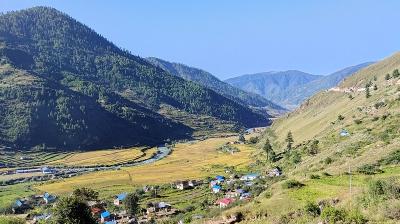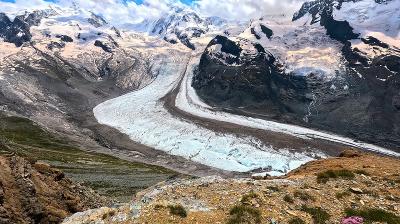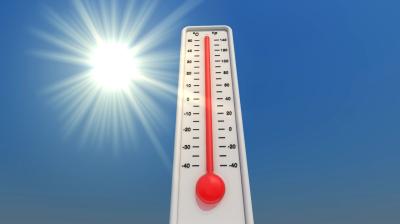Africa suffers disproportionately from climate change
Nairobi 4 September 2023 (WMO) – Africa is responsible for only a fraction of global greenhouse gas emissions but is suffering disproportionately from climate change. This is harming food security, ecosystems and economies, fueling displacement and migration and worsening the threat of conflict over dwindling resources, according to a new report from the World Meteorological Organization (WMO).
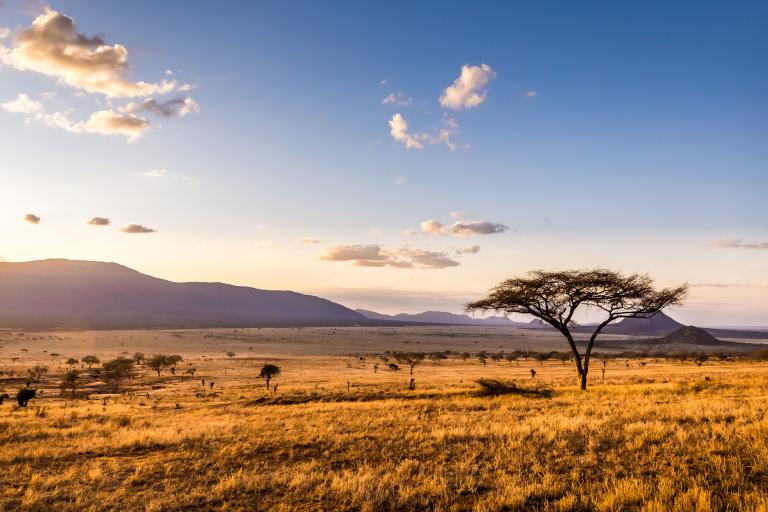
The State of the Climate in Africa 2022 report shows that the rate of temperature increase in Africa has accelerated in recent decades, with weather- and climate-related hazards becoming more severe. And yet financing for climate adaptation is only a drop in the ocean of what is needed.
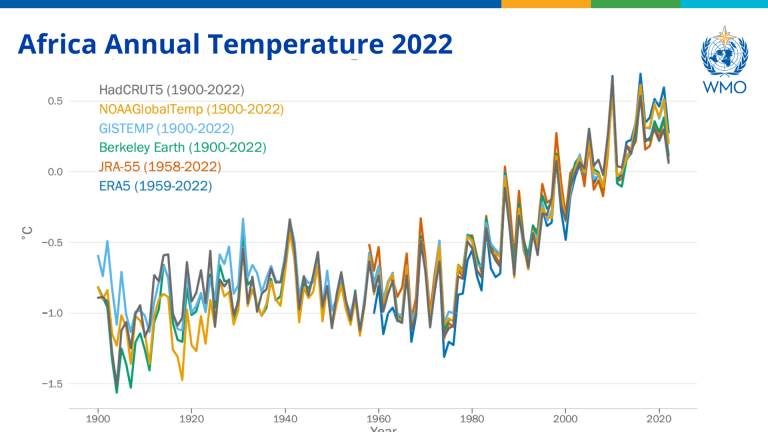
More than 110 million people on the continent were directly affected by weather, climate and water-related hazards in 2022, causing more than US$ 8.5 billion in economic damages. There were a reported 5 000 fatalities, of which 48% were associated with drought and 43% were associated with flooding, according to the Emergency Event Database. But the true toll is likely to be much higher because of under-reporting.
“Africa is responsible for less than 10 percent of global greenhouse gas emissions. But it is the continent which is the least able to cope with the negative impacts of climate change. Heatwaves, heavy rains, floods, tropical cyclones, and prolonged droughts are having devastating impacts on communities and economies, with increasing numbers of people at risk,” said WMO Secretary-General Prof. Petteri Taalas.
“There are big gaps in weather observations in Africa and early warning services are woefully adequate. We are determined to close those gaps and ensure that life-saving early warnings reach everyone,” he said.
The report, produced jointly with the African Union Commission and Africa Climate Policy Centre of United Nations Economic Commission for Africa (UNECA), was released during the Africa Climate Summit, which also saw the launch of the Early Warnings For All in Africa Action Plan. Kenya, which is hosting the summit, also released its State of the Climate in Kenya in 2022 report.
“Africa, like other regions, has come to terms with the reality that climate change is already happening. Left untamed, the coming decades and years would easily be characterized by severe climate-induced pressure on the continent’s economies, livelihoods and nature,” says H.E. Ambassador Josefa Leonel Correia Sacko, Commissioner for Agriculture, Rural Development, Blue Economy and Sustainable Environment at the African Union Commission.
“Given Africa’s high exposure, fragility and low adaptive capacity, the effects of climate change are expected to be felt more severely. People’s health, peace, prosperity, infrastructure, and other economic activities across many sectors in Africa are exposed to significant risks associated with climate change,” she writes in the report.
Agriculture is the mainstay of Africa’s livelihoods and national economies – supporting more than 55% of the labor force. But its agricultural productivity growth has declined by 34% since 1961 due to climate change. This decline is the highest compared to what other regions of the world have experienced.
Projected annual food imports by African countries are expected to increase by about a factor of three, from US$ 35 billion to US$ 110 billion by 2025.
The level of loss and damage, and therefore the costs incurred, will depend on many factors, including the level of ambition of global mitigation actions and the level of investment in adaptation at the local level. In a 4 °C warming world, with strong regional adaptation, “residual damages” costs equivalent to 3% of Africa’s projected gross domestic product could be incurred annually by 2080.
The loss and damage costs in Africa due to climate change are projected to range between US$ 290 billion and US$ 440 billion, depending on the degree of warming, according to the UNECA’s African Climate Policy Centre.
Climate change and the diminishing natural resource base could fuel conflicts for scarce productive land, water, and pastures, where farmer-herder violence has increased over the past 10 years due to growing land pressure, with geographic concentrations in many sub-Saharan countries, according to the report.
The report, with an accompanying story map, is the result of a multi-agency effort. It includes input from the African Union Commission, the UN Economic Commission for Africa, and contributions from African National Meteorological and Hydrological Services, WMO Regional Climate Centres, specialized United Nations agencies, the African Development Bank, the Consultative Group on International Agricultural Research, and numerous experts and scientists.
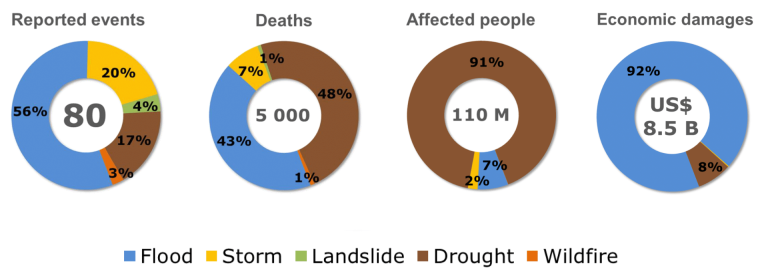
- Region:
- Region I: Africa


